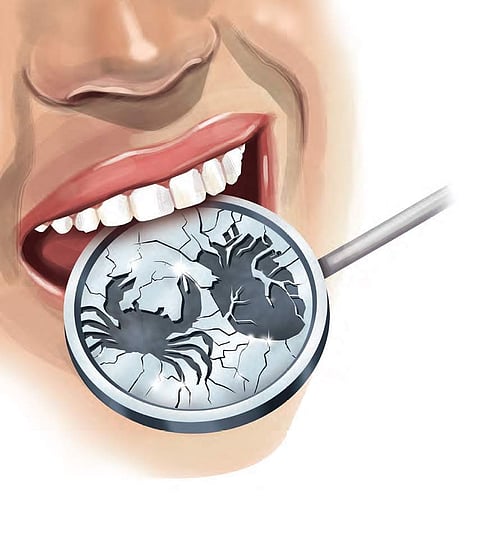

HYDERABAD: The Centre’s National Health Mission (NHM) programme Rashtriya Bal Swasthya Karyakram (RBSK) has noted that poor dental health and visual impairment are the top health problems faced by schoolchildren across the State. This is followed by a substantial percentage of skin conditions and severe anaemia.
Over 27 per cent of children who were screened suffered from dental and oral problems, followed by 12.9 per cent of children with visual impairment. Around 10.5 per cent of children had skin conditions, while 6.5 per cent suffered from severe anaemia.
Dr Gopi Krishna, an official from the NHM wing, said, “It is at the RBSK programme that most students realise they have a vision impairment. This is because unlike adults, kids are not very sensitive to visual problems. Only when a doctor comes up to a child and asks them specifically if they have an issue, would the child reveal that they are unable to see the chalkboard clearly.”
In the last six months, the RBSK programme screened over 28 lakh children, which was 91 per cent of the target pool. Close to 1,35,341 children were diagnosed with some form of health issue, of whom 11,032 (82 per cent of screened kids) were given treatment.
The programme is conducted at government schools every year across all districts in the State. A team of one medical officer and two Auxiliary Nurse Midwives (ANM) visit the target school, spend about four to five hours screening children. The team is equipped with basic drugs and pharmaceutical equipment. School children from the age of six to 18 are screened in every school. One of the medical officers at a field visit to Rangareddy told Express, “Mostly the kids just run a temperature, or have a sprain that has not been treated by a doctor. With the permission of the teachers, we call the parents, provide them with antibiotics and paracetamol and send the children home. We also teach children the importance of basic hygiene practices.”
Doctors have also noted that 0.7 per cent of the children suffer from cognitive delay, 0.4 per cent of children have behavioural disorders such as autism, and over 1 per cent children are diagnosed with neuro motor impairment. However, Dr Ganesh, DMHO of Rangareddy district, claimed, “Many parents of kids with physical and medical handicap refuse to avail treatments as the ‘disability’ tag provides various privileges in the long run to the family.”
RBSK health mission in State
Rashtriya Bal Swasthya Karyakram (RBSK) is held at government schools across the State every year. A team of one medical officer and two ANMs visit the target school, spend about four to five hours screening children